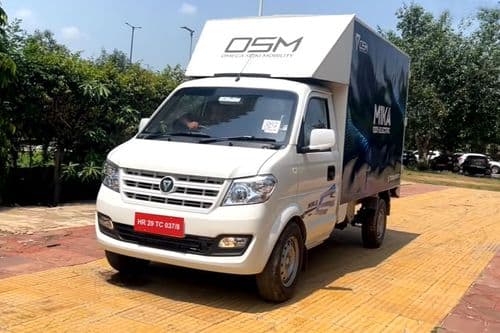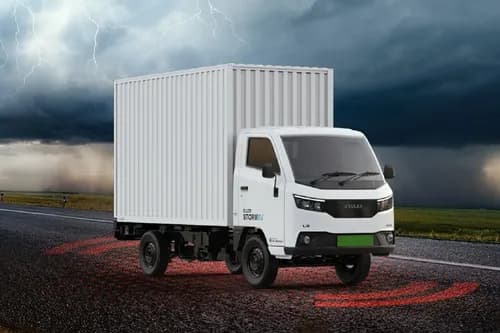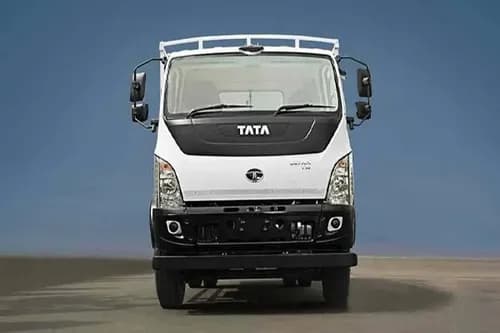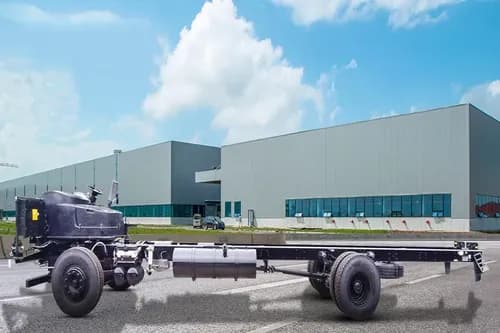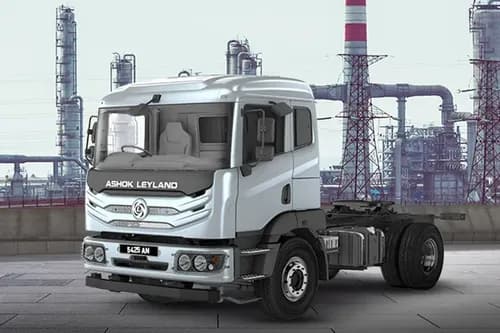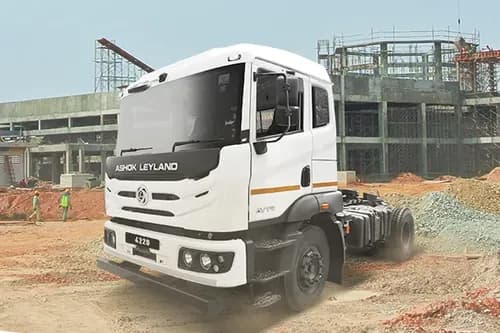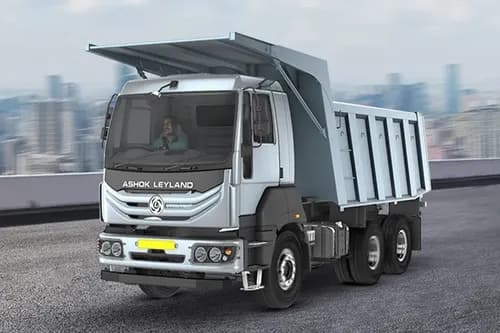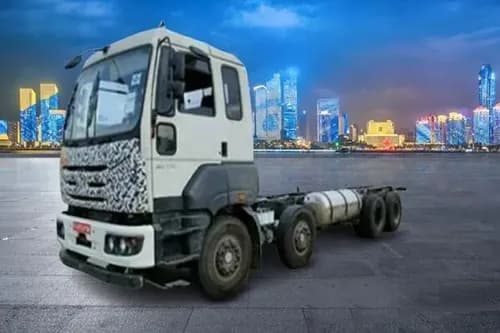Ad
Ad
Ad
Fish Farming Business in India: How to Start, its Types, and Challenges
Fish farming provides a unique opportunity for you to step into the world of business. In this article, you will get detailed information about the steps, types of fish farming, and how to start a successful fish farming business in India.

The fish farming business has gained immense popularity in India in recent years. India's diverse climatic conditions and abundant water resources provide an ideal environment for various types of fish farming. Fish farming is also known as aquaculture.
To start and run a profitable fish farming business, you must have knowledge about the industry and fish species. In this article, we will discuss all the essential steps, types of fish farming, and how to start a successful fish farming business in India.
How To Start a fish farming business in India?
Starting a fish farming business requires initial investment, expertise and training. Fish farming startup costs in India depend on the size and type of the fish farming. Fish farming provides employment, economic assistance, and other advantages. Profitability in the fish business or fish farming varies from person to person.
Starting a fish farming venture can be a rewarding and sustainable way to produce food, generate income, and promote environmental conservation. Fish farming allows you to raise fish for consumption or sale. Here are the steps to start with fish farming business in India:
Research and Planning
- Choose Your Fish Species
- Conduct thorough market research to understand the demand for your chosen fish species in your area.
- Check with local and national authorities for permits and regulations related to fish farming in your region.
- Choose a suitable location for your fish farm.
- Develop a comprehensive business plan that outlines your goals, budget, and timeline.
Set Up Your Fish Farm
- Depending on your chosen fish species and scale of operation, you can use earthen ponds, concrete tanks, or other appropriate structures. Ensure proper sizing and depth to accommodate the fish and their growth.
- Maintain high water quality by regularly testing and treating the water for factors such as temperature, pH, and oxygen levels.
- Install aeration systems and water filtration machines to ensure optimal conditions for the fish.
- Create a feeding plan based on the dietary needs of your fish species. High-quality fish feed is important for healthy growth.
Management and Care
- Develop a consistent feeding schedule and monitor the fish's feeding habits. Overfeeding or underfeeding can lead to health issues.
- Regularly inspect your fish for signs of disease or stress. Be prepared to address any health concerns promptly.
- Continuously monitor water quality parameters and make necessary adjustments to maintain a healthy environment.
- Plan the timing and method of harvesting. Fish are typically harvested when they reach market size. Ensure humane and efficient harvesting methods.
Marketing and Sales
- Develop a marketing strategy to promote your fish.
- Set competitive prices and establish reliable distribution channels to get your fish to market.
Record Keeping and Financial Management
- Maintain detailed records of your operations, expenses, and income. This will help you make informed decisions and track your revenue.
- Stay on top of your budget and financial planning to ensure your fish farming venture remains profitable.
Fish farming can be a profitable business when approached with proper planning, dedication, and a commitment to producing high-quality products. As you gain experience, you can consider expanding your business and exploring new opportunities within the aquaculture industry.
Also Read: Urban Farming in India: Types, Process and Benefits
Types of fish farming
Choosing the right type of fish farming is crucial for maximizing productivity and efficiency. Here are some common types of fish farming:
Monoculture: Monoculture involves the cultivation of a single species of fish in a specific area or pond. It's a simple and common approach, often used for species like tilapia, catfish, or trout.
Polyculture: Polyculture is the practice of raising multiple species of fish in the same environment. This can be a more sustainable approach as different species may occupy different niches, helping to maximize resource utilization and reduce the risk of disease outbreaks.
Land-based Fish Farming: Land-based fish farming refers to facilities that are located onshore rather than in open water bodies. These facilities can be tanks, pools, or recirculating aquaculture systems (RAS) that provide a controlled environment for fish production.
Fish Culture in Cages: Caged fish farming involves raising fish in net cages placed in natural water bodies, such as rivers, lakes, or coastal areas. This method is common for species like salmon and sea bass.
Integrated Fish Culture: Integrated fish culture, also known as aquaponics, combines fish farming with the cultivation of plants. Fish waste provides nutrients for the plants, and the plants help filter and clean the water for the fish.
Fish Culture in Pens in the Floodplain: Fish culture in pen refers to the management of supplied fish in a floodplain region surrounded on one or more sides by a bamboo frame or other fencing or netting. The base of the fence is planted in the bottom mud of the water body, and the water of the pen is well-connected with the water outside (water flow between the pen and floodplain).
Extensive Fish Culture System: Extensive Fish Culture systems rely on natural productivity and local photosynthetic production. Fish are typically raised in ponds, lakes, or reservoirs with minimal human intervention.
Semi-Intensive Culture System: Semi-intensive systems maintain a balance between natural productivity and external feeding. Fish are usually raised in ponds and receive supplemental feed to support growth and production.
Intensive Culture System: Intensive systems involve high-density fish farming in controlled environments like tanks or RAS. Fish are provided with complete nutrition through artificial feeds, and water quality parameters are closely monitored.
The fish farming business has its own advantages and limitations. When it comes to choosing the right type of Fish farming, there are several factors to consider, including the species of fish, environmental conditions, available resources, and the goals of the fish farming.
Financing Schemes for Fish Farming in India
You can learn about fish farming from government institutes. Furthermore, these institutes aim to improve employment prospects by providing free or low-cost training in biofloc fish farming technologies, management, fish seed hatchery operations, aquarium construction, and pond design.
The Government of India has implemented numerous schemes to develop the fish farming industry in India. PM Matsya Yojana, Blue Revolution Scheme, and FIDF Scheme are a few examples.
Pradhan Mantri Matsya Sampada Yojana
The Pradhan Mantri Matsya Sampada Yojana initiative, which was launched in 2020, intends to boost fish production, raise fishermen's income, and create job opportunities in the fisheries sector.
It involves infrastructural development, modernization of fisheries, increased production through sustainable aquaculture, and promotion of fish.
Blue Revolution Schemes
The Blue Revolution Scheme initiative, which was launched in 2014, intends to boost fish production from 11.41 million metric tonnes (MMT) in 2022-23 to 17.50 MMT by 2023-24.
It aims to boost fish productivity by fostering integrated fish farming in India, expanding seed production, offering technical assistance, and improving infrastructure.
Fisheries and Aquaculture Infrastructure Development Fund (FIDF)
The FIDF aims to close the significant gaps in fishing infrastructure and achieve a sustainable increase of 8–9%. The main aim of this scheme is to bring fish production to 20 million tons by 2022–2023.
Challenges of Fish Farming Business
The fish farming business offers great potential for profitability and food production. However, it comes with many challenges that require management and a proactive approach. These challenges can significantly impact the success and profitability of fish farms. Here are some of the key challenges faced by fish farmers:
Market Fluctuations: The fish farming industry is directly proportional to market fluctuations, which can affect the revenue of your fish farming business. Prices of fish products depend upon market demand, competition, and other factors such as government regulations and environmental concerns.
Disease Outbreaks: Disease management is a concern in fish farming. Fish farming ponds can be susceptible to various diseases caused by viral, bacterial, and parasitic infections. These diseases quickly spread throughout the pond and lead to losses.
Water Quality Maintenance: Maintaining optimal water quality in fish farming ponds is crucial for the health and growth of fish.
Initial Investment: Setting up a fish farm requires a significant upfront investment. Factors that affect the start-up cost include Infrastructure development, the purchase of equipment like aerators and feeders, and sourcing high-quality fingerlings.
Technical Knowledge: Successful fish farming demands a deep understanding of aquaculture techniques, species-specific requirements, and disease management.
Also Read: Modernising Agriculture in India: Top 4 Methods
Conclusion
Fish farming provides a unique opportunity for you to step into the world of business. Fish farming can be a profitable and rewarding venture in India if you choose the right species and stay committed to quality and sustainability.
With the right approach, fish farming in India can be an opportunity for individuals who want to invest in agriculture and contribute to the growing demand for seafood in the country.
Features & Articles
Top 5 Tata Ultra Trucks in India 2025: Price, Features And Specifications Explained
The Tata Ultra range offers modern and stylish trucks. In this article, we have listed the Top 5 Tata Ultra Trucks in India 2025 with their price, specifications and feat...
17-Feb-25 06:24 AM
Read Full NewsBest Three-Wheelers Showcased At Auto Expo 2025
If you are interested in buying three-wheelers or want to learn more about the latest features and technologies in three-wheelers, this article is for you. ...
14-Feb-25 12:36 PM
Read Full NewsDiscover Why Electric Rickshaws Are Smart Investments in India
Electric three-wheelers have become a smart choice for many businesses due to several reasons. Here’s Why Electric Rickshaws Are Smart Investments in India...
12-Feb-25 01:18 PM
Read Full NewsExcavators in India: Types, Best Models and Their Uses in Construction Sites
Explore excavator types in India, their features uses, and prices. Find the best machine for construction, mining, and infrastructure projects....
11-Feb-25 11:41 AM
Read Full NewsFASTag New Rules: Everything You Need to Know
According to the plan, the cost for a monthly pass will be Rs 3000. Additionally, commuters can opt for a lifetime pass for Rs 30,000....
11-Feb-25 09:43 AM
Read Full NewsSWITCH Mobility IeV8: The Smart Electric Commercial Vehicle
The IeV8 offers two battery options: 70 kWh and 140 kWh, which allow it to cover distances of up to 250 kilometers. ...
06-Feb-25 01:28 PM
Read Full NewsAd
Ad
Registered Office Address
Delente Technologies Pvt. Ltd.
M3M Cosmopolitan, 12th Cosmopolitan,
Golf Course Ext Rd, Sector 66, Gurugram, Haryana
pincode - 122002
Join CMV360
Receive pricing updates, buying tips & more!
Follow Us
COMMERCIAL VEHICLE BUYING BECOMES EASY AT CMV360
CMV360 - is a leading commercial vehicle marketplace. We helps consumers to Buy, Finance, Insure and Service their commercial vehicles.
We bring great transparency on pricing, information and comparison of tractors, trucks, buses and three wheelers.












